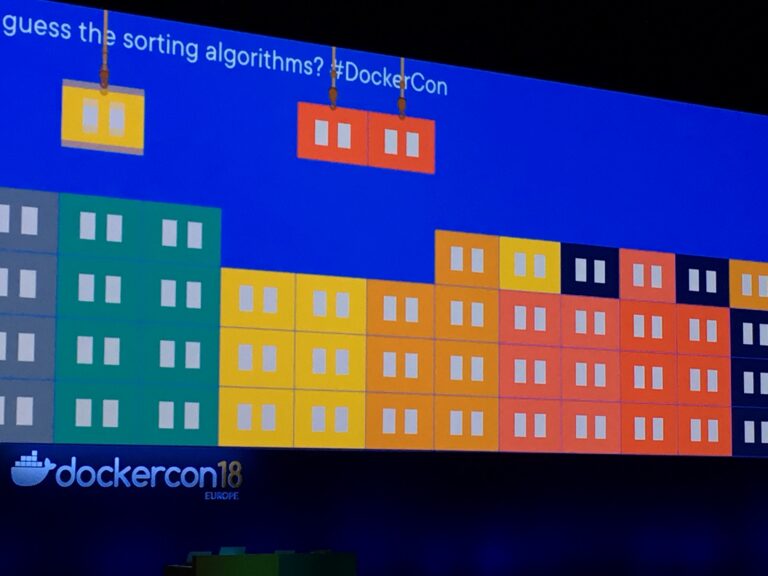
Docker has pledged to maintain its developer community, Captains included, and what remains of its workforce after its shock split on Wednesday.
After six years of championing containers, but failing to find a satisfactory revenue model or a reason why customers should choose its container orchestrator Swarm over Kubernetes, the firm dramatically reorganised itself on Wednesday.
The Docker Enterprise business, including Swarm, has been taken over by Mirantis, a comparatively low profile company that has built its business to date on Openstack and more recently Kubernetes. Rob Bearden, who took over as CEO of Docker in May, leave to be replaced by Scott Johnson, previously chief product officer.
The rump of Docker will focus on the Docker Desktop and Docker Hub products, and will be recapitalised by investors to the tune of $35m.
In raw terms, 300 people will make the trek to Mirantis, while 80 will stay at Docker. A spokesman told us there were no layoffs as a result of the split, though Docker employees were posting their resumes within hours of the deal being announced.
Johnson said in a blog post that the firm would “expand Docker Desktop and Docker Hub’s roles in the developer workflow for modern apps.
“Specifically, we are investing in expanding our cloud services to enable developers to quickly discover technologies for use when building applications, to easily share these apps with teammates and the community, and to run apps frictionlessly on any Kubernetes endpoint, whether locally or in the cloud.”
“With the developer productivity tools and local Kubernetes environment of Docker Desktop, and the cloud-based application registry and development team collaboration services of Docker Hub,” he continued, “Docker is well positioned to provide developers a more deeply integrated, seamless experience for building, sharing and running multi-service hybrid cloud applications. Today there are millions of active users of Docker Desktop and Docker Hub who have chosen Docker as the basis of their workflow for modern applications.”
A Docker spokesman added the firm “will be developing and selling Docker Desktop Enterprise, which enables developers to more easily and quickly build modern apps and IT to securely configure and manage development environments. Additionally, Docker Hub has paid subscriptions.”
As for the enterprise product, Mirantis said that “The newly acquired Docker Enterprise team will continue to develop and support the Docker Enterprise platform and add new capabilities that enterprise clients expect.
“The Mirantis Kubernetes technology joined with the Docker Enterprise Container Platform brings simplicity and choice to enterprises moving to the cloud. Delivered as a service, it’s the easiest and fastest path to the cloud for new and existing applications,” said Adrian Ionel, CEO and co-founder at Mirantis.
But Swarm’s days seem numbered, at best, with Mirantis pledging support for “at least two years, depending on customer input into the roadmap. Mirantis is also evaluating options for making the transition to Kubernetes easier for Swarm users.”
According to Mirantis’s release on the deal, one-third of Fortune 100 and one-fifth of Global 500 companies use Docker Enterprise. Last year, then CEO Steve Singh told journalists at the vendor’s Dockercon Europe in Barcelona that the firm had 650 paying enterprise users, and “half of them use Swarm to run their environments in production.”
At the time Singh said the company was pulling in between 100 to 150 customers per quarter and that its average deal size was twice as big as the year before. But one attendee at Docker’s US event earlier this year, told us sponsors were noticeably absent and the whole event seemed “sad.”
While Docker had failed to build a sustainable business, it had built a thriving community of users and developers – at least up until recently. So as well as employees being left uncertain of their future, community members may well be feeling the rug has been pulled from under them.
A Docker spokesman told us, “Docker is doubling down on developers and remains strongly committed to supporting the community, including user groups and captains. We are excited to invest more in this area as part of our next chapter.”
One observer who had been close to Docker, told us that the firm’s predicament had come about because it had worked against the community and tried to own the ecosystem. Furthermore, once Kubernetes had won the orchestration battle, it had to backtrack on Swarm, leaving it with muddled messaging, compared to Red Hat and OpenShift. Moving squarely into the dev space was a “good place for them”.
But Paul Johnstone, Philosopher CTO and former Senior Developer Advocate at AWS for Serverless, told us it seemed “The business model has literally been taken out from under it with the sale of the enterprise arm, which is the easiest way to make a serious business out of open source projects.
As for the Docker community, he said “The tech world loves the idea of ‘Docker Captains’ but to be blunt, it means nothing without the enterprise businesses taking you on.”
More broadly, he said, we seem to be at the end of an economic cycle when it came to tech firms – witness the fates of Uber, wework, as well as smaller tools firms that have been absorbed by bigger rivals or private equity.
“This is a classic case of ‘at some point we’ll find a business model that will work’,” he said. “They haven’t found it fast enough, and have been outplayed by Google, Amazon and Microsoft, and many other players.”
